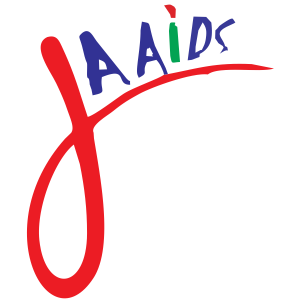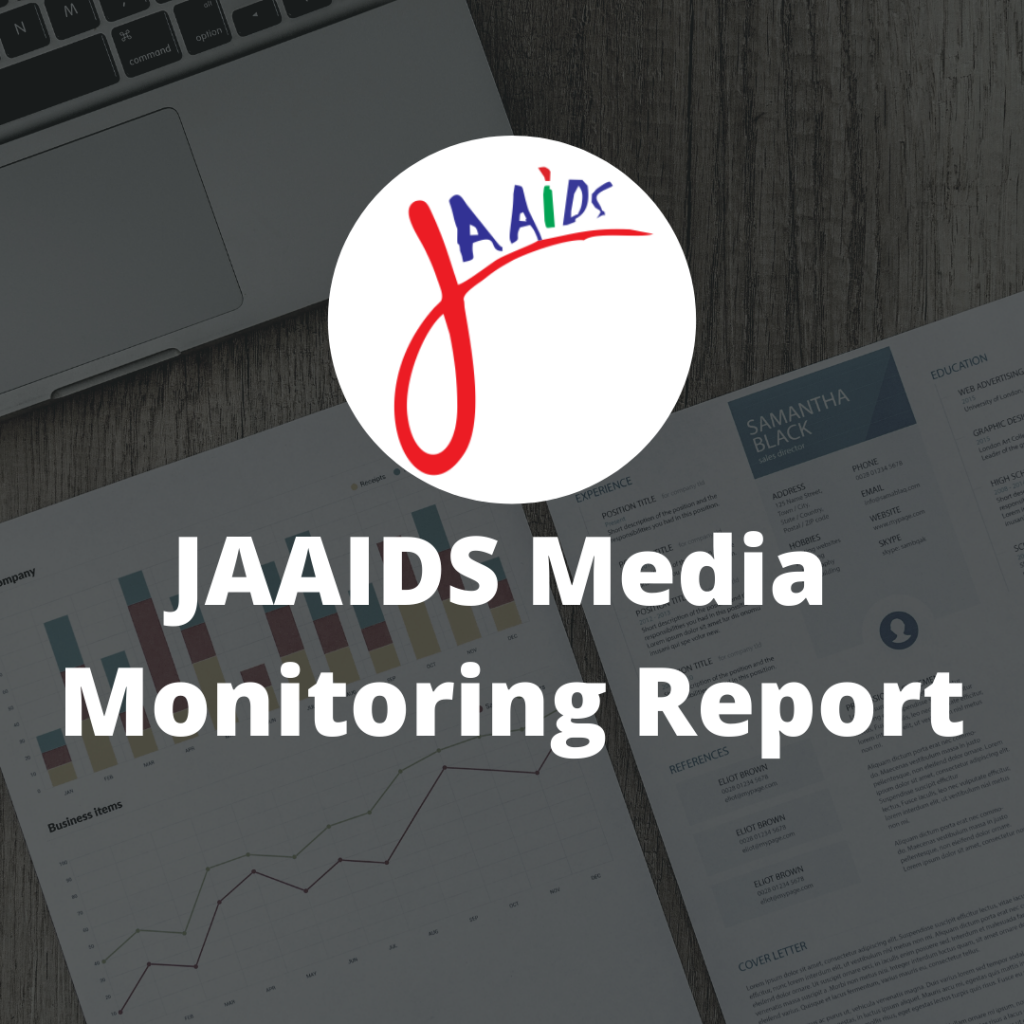“Delta commissioner who spreads HIV unveiled”
It is not yet certain how well soft sell journalism has impacted on the Nigerian media landscape, but one fact that cannot be denied is that whatever they touch turns to mud. You only need to read their report on HIV/AIDS to feel this ugly albeit regrettable reality.
Fast selling celebrity journal, City People, demonstrated this unnecessary muckraking when it reported the story of a Commissioner in Delta State alleged to be “spreading HIV” on page 37 in its July 26,2007 edition.
In the course of this media review, one puzzle that was really difficult to unravel was
the relevance of this story especially with regards to AIDS response in Delta. Just like most stories reported by City People, the article smacks of tales by moonlight as it did not disclose the name of the said commissioner neither did it mention any one who accused the commissioner of infecting him or her with HIV. The story simply said: “The commissioner who has just been reappointed by Governor James Ibori is known to have been dating girls from tertiary institutions in Edo and Delta States, thereby spreading the HIV rapidly among them”.
While we cannot deny the high level of ignorance of HIV/AIDS issues amongst journalists within the soft sell genre, their aversion for enlightenment/training programmes especially when it addresses developmental issues would continue to rubbish the little gains achieved by several other AIDS activists within the Nigerian media.
The City People story was an exception in the month of July as most of the papers tried to capture some cheering happenings on HIV/AIDS in the month like the Three Arms Road Walk Against HIV/AIDS organized by the Bayelsa state government.
ThisDay published a one-page feature on the event, titled “Kaunda: Leading the War against HIV/AIDS in Africa”. The article focused on the former Zambian president who had lost a 30-year old son to AIDS-related illness. Of course the reporter had the choice of choosing his angle to the story and that seems to be the news fro him.
Kaunda explained that in every summit he attended whether in the Commonwealth, African Union or the United Nations, discussions on Africa would either be on the HIV/AIDS epidemic, starvation, war or coup. This, he said, gives him cause for concern. Kaunda wondered “why should it always be Africa?”
There is hope for the continent, according to the 82-year old Kaunda, one of Africa’s earliest freedom fighters. “If colonialism, slave trade and apartheid could be defeated, HIV/AIDS can be defeated by Africa”.
He described the three Arms Road Programme as a unique opportunity as it signifies the commitment of the three main arms of government –the executive, judiciary and the legislature in the common efforts against the epidemic.
One aspect of this event which journalists who covered the event ought to have explored and investigated was Governor Goodluck Jonathan’s claim that the rising case of HIV infection in Bayelsa State was as a result of influx of foreigners due to oil and gas exploration activities in Bayelsa.
As the third largest oil and gas producing state in Nigeria, Bayelsa no doubt is host to several oil and gas prospecting companies and other business interests. But is that enough excuse for the HIV/AIDS situation in the state? In the first place, should a responsible journalists report such weak attributions which are not evidence based-without asking the governor or trying to do his/her investigation?
One major follow up story that could come out of this event should be a story to confirm whether each PLWH in Bayelsa State are now receiving the sum of N10, 000 which Governor Jonathan promised to pay each member of the network.
The role some traditional rulers are playing in ensuring their subjects get to know their HIV status was another cheering report in July.
According to a story titled “Go for AIDS Test, Traditional Ruler tells subjects” published on July 11 in the Daily Trust, the Ya Yi Zakwoi, chief of Mararaba, a rural community close to the FCT Abuja, often advises people living within his domain to go for HIV test to know their status.
The traditional ruler, according to story organizes HIV/AIDS workshop at his palace to enlighten people on the dangers of AIDS and the ways of preventing it. The influx of people into the community, as a result of the demolition exercises in the FCT was said to have informed the Maraba Chief’s decision.
What a great impact it would make if more traditional leaders would use their position and influence in HIV and AIDS advocacy like the Maraba Chief.
“Apo Six: Suspect cheating on AIDS Claim, FG tells Court”, is a story published by Daily Trust on July 6.It is a follow-up on a story which the paper did earlier in June. Then, Daily Trust had reported the story of Ezekiel Acheneje, one of the six indicted
policemen in the Apo Six saga who told the court that he is HIV positive and must be allowed to go for treatment which was not available at the prison where he was being detained.
But in this latest report, the prosecuting counsel, Mamman Usman (SAN) claimed that the alleged HIV positive suspect is lying to induce sympathy from the court so as to escape justice.
The story was obviously one-sided as the reader does not get to know the response of the defense counsel nor that of the presiding judge. A follow-up would do on the story.
The need to eradicate stigma and discrimination which continues to be a recurring problem in efforts at addressing the impact of HIV/ and AIDS was also in the news. One of such stories is “Obasanjo advocates legislation to protect PLWHA”, published in the July 5 edition of Business Day on page 5.
But while it is good for the media to report government pronouncements, it is better if the media ask questions about what has become of such pronouncements in the past.
Of note here is for the media to find out the reason for the delay in passing the anti-stigma bill into law which was sent to the National Assembly since 2004
This Day, Tribune and New Age were the only three newspapers that published editorials addressing HIV/AIDS in the month. This Day addressed “LUTH and the HIV Baby” on July 6, New Age published “The Treatment Question” on July 20 while Tribune wrote
“HIV: Have you been circumcised?” on July 27.
The present government, New Age writes, may have done well in directing attention to the HIV and HIDS pandemic by putting together enlightenment programmes, workshops and seminars to rein in its spread. But its treatment programme, it laments hasn’t been successful.
The editorial expressed dissatisfaction over the FG’s target of putting 250, 000 PLWH on free ARV by June 2006 which was not achieved. It expressed disappointment over the fanfare that heralded the announcement of the target when key staff of NACA already knew in the first place that it was simply unrealistic.
Aside the provision of free ARVs, the paper advises the government to also include services like laboratory tests especially for CD 4 counts as well as treatment for opportunistic infections. The editorial was very well written especially from an informed
perspective.
The Guardian, on July 21, published a story which AIDS activists would find disturbing. According to the story titled “US Embassy may deny HIV persons visas,” the US consulate may not grant an immigrant visa to any applicant who is HIV positive unless in special cases where there is proof that the applicant would be well taken care of while in the US. The writer quoted some embassy officials in the report.
While applicant’s employment status, financial situation, family ties and the reason for the intended visit to the US constitute the benchmark for which a visa may be issued or denied, according to Mr. Alan Latimer (Consul) who was quoted in the report, it is surprising that the embassy would brazenly engage in such discriminating acts against PLWH irrespective of the importance of the reasons for their travel.
It is equally baffling why news organizations should continue to give space to people who promote falsehood and misinformation. One of such falsehoods is a story headlined “God introduced AIDS to torment sinners” credited to a certain Prophet Solomon Ozi-David, which was published by The Sun on page 40 of its July 18 edition.
In the quest to get divergent views on an issue, reporters and health correspondents should not provide an avenue for charlatans to misinform the public who rely on them for credible news as such misinformation could be taken as fact by some readers.
Punch, Daily Independent, The Guardian and Tribune were all guilty of inappropriate use of language in reporting HIV and AIDS issues with headlines s like “Ondo gives food to AIDS victims” and “No big deal about HIV, Two sufferers relate their experience” among others.
A total of 207 reports were published in the month. The Sun had the highest with 28 reports closely followed by Daily Independent with 26 stories and Guardian with 25. On the average, the news magazines did just one story on HIV and AIDS in the month.
A breakdown of the stories indicates that 146 were news stories, 52 were features, and three were editorials while advertorials were six. Daily Independent was the only paper that led with an HIV/AIDS story on its cover page on July 17 with the story ‘World leaders converge in Abuja as Leon Sullivan Summit kicks off,” with a rider- “Obasanjo, Clinton sign pact on HIV/AIDS”.
The newspapers monitored show that events continue to be the major source of stories for journalists writing on HIV/AIDS in the Nigerian media.
Newspapers monitored during the month are Business Day, Daily Champion, Daily Trust, Daily Independent, Financial Standard, Guardian, New Age, Punch, The Sun,
Tribune, The Comet
Magazines monitored in the month are: Insider, City People, Newswatch, The News and The Week
The JAAIDS Media Monitoring Service is a project of Journalists Against AIDS (JAAIDS) Nigeria offered to the media and other interested readers. The service provides feedback through objective analysis and incisive commentary on media coverage of HIV/AIDS in Nigeria to journalists, so as to facilitate informed and effective coverage of the epidemic.

